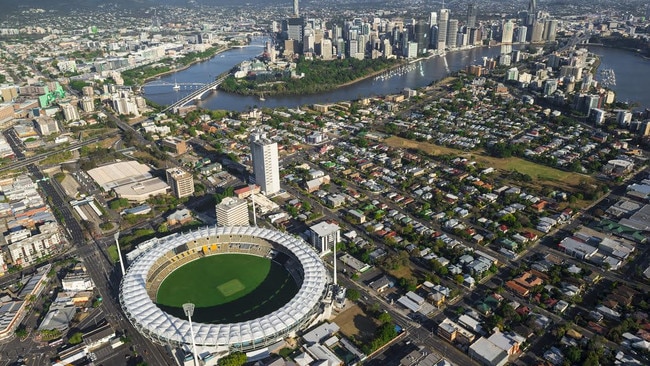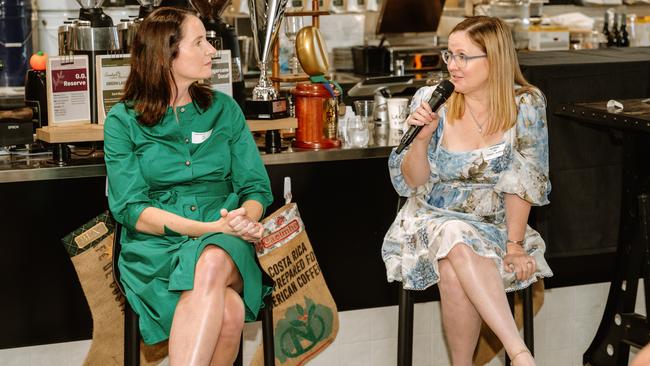New Olympic stadium needed but business should also contribute
The Queensland government must focus on delivering more than a stadium and sports venues if it wants to deliver a true Olympic legacy in Brisbane, the Committee for Brisbane boss says.

The Queensland government must focus on delivering more than a stadium and sports venues if it wants to deliver a true Olympic legacy in Brisbane, says the boss of the capital’s city shaping organisation.
Committee for Brisbane chief executive Jen Williams said government needed to consider how it could work with private businesses to deliver hard legacy, such as building, transport and digital infrastructure, alongside “soft legacy”.
“I would really love to see a focus on that civic leadership,” Ms Williams said on a panel hosted by career incubator Springboard.
“We know the government’s going to be focusing on things like sport, health and wellbeing, and First Nations inclusivity but I would love to see business leaders and community leaders of Brisbane stepping up to deliver.
“I would love to see a project that Brisbane delivers as a collective outside of government that is a gift back to the city as some form of legacy.”

The recently elected Liberal National government will launch a 100-day review of Olympic infrastructure in coming weeks as part of its election promises. Since it formed government, an estimated $681m in cost blowouts have been uncovered in relation to the delivery of four venues.
Premier David Crisafulli has ruled out building a new stadium to replace the Gabba, however, despite its chief tenants, Queensland Cricket and the Brisbane Lions, issuing a joint plea for a new Olympic venue this month.
Ms Williams said a new stadium made sense for the rapidly growing region, which is expected to be home to six million people in the coming 20 years.
“We need to look, realistically, at what does a capital city representing a region of six million people need?” she said.
“It needs a stadium that is good for purpose, and we currently do not have one. So whether that is enough to rebuild, whether that is a new stadium entirely, we definitely need something better than what’s currently proposed.”
Ms Williams also hoped upgrades to Brisbane mobile network capabilities would be brought forward to improve coverage black spots that can be created during large-scale events.
“Picture a stadium with 60,000 people all trying to upload their photos or videos to Instagram at the same time – the network is just not going to deal with that,” she said.
Ms Williams spoke on the panel alongside the Urban Development Institute of Australia Queensland chief executive Kirsty Chesser-Brown and Property Council Queensland executive director Jess Caire, who agreed productivity in the construction industry must improve to meet Olympic deadlines.
Ms Chesser-Brown said all stakeholders in the building approvals process needed to adopt a “feasibility mindset” to get construction moving.
The Property Council has supported the government’s decision to pause the Best Practice Industry Condition framework pending re-establishment of the state productivity commission.





To join the conversation, please log in. Don't have an account? Register
Join the conversation, you are commenting as Logout